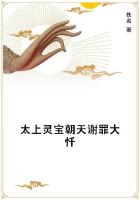But what is the meaning of 'attending' to the gods? The word 'attending,' when applied to dogs, horses, and men, implies that in some way they are made better. But how do pious or holy acts make the gods any better? Euthyphro explains that he means by pious acts, acts of service or ministration. Yes; but the ministrations of the husbandman, the physician, and the builder have an end. To what end do we serve the gods, and what do we help them to accomplish? Euthyphro replies, that all these difficult questions cannot be resolved in a short time; and he would rather say simply that piety is knowing how to please the gods in word and deed, by prayers and sacrifices. In other words, says Socrates, piety is 'a science of asking and giving'--asking what we want and giving what they want; in short, a mode of doing business between gods and men. But although they are the givers of all good, how can we give them any good in return? 'Nay, but we give them honour.' Then we give them not what is beneficial, but what is pleasing or dear to them; and this is the point which has been already disproved.
Socrates, although weary of the subterfuges and evasions of Euthyphro, remains unshaken in his conviction that he must know the nature of piety, or he would never have prosecuted his old father. He is still hoping that he will condescend to instruct him. But Euthyphro is in a hurry and cannot stay. And Socrates' last hope of knowing the nature of piety before he is prosecuted for impiety has disappeared. As in the Euthydemus the irony is carried on to the end.
The Euthyphro is manifestly designed to contrast the real nature of piety and impiety with the popular conceptions of them. But when the popular conceptions of them have been overthrown, Socrates does not offer any definition of his own: as in the Laches and Lysis, he prepares the way for an answer to the question which he has raised; but true to his own character, refuses to answer himself.
Euthyphro is a religionist, and is elsewhere spoken of, if he be the same person, as the author of a philosophy of names, by whose 'prancing steeds'
Socrates in the Cratylus is carried away. He has the conceit and self-confidence of a Sophist; no doubt that he is right in prosecuting his father has ever entered into his mind. Like a Sophist too, he is incapable either of framing a general definition or of following the course of an argument. His wrong-headedness, one-sidedness, narrowness, positiveness, are characteristic of his priestly office. His failure to apprehend an argument may be compared to a similar defect which is observable in the rhapsode Ion. But he is not a bad man, and he is friendly to Socrates, whose familiar sign he recognizes with interest. Though unable to follow him he is very willing to be led by him, and eagerly catches at any suggestion which saves him from the trouble of thinking. Moreover he is the enemy of Meletus, who, as he says, is availing himself of the popular dislike to innovations in religion in order to injure Socrates; at the same time he is amusingly confident that he has weapons in his own armoury which would be more than a match for him. He is quite sincere in his prosecution of his father, who has accidentally been guilty of homicide, and is not wholly free from blame. To purge away the crime appears to him in the light of a duty, whoever may be the criminal.















